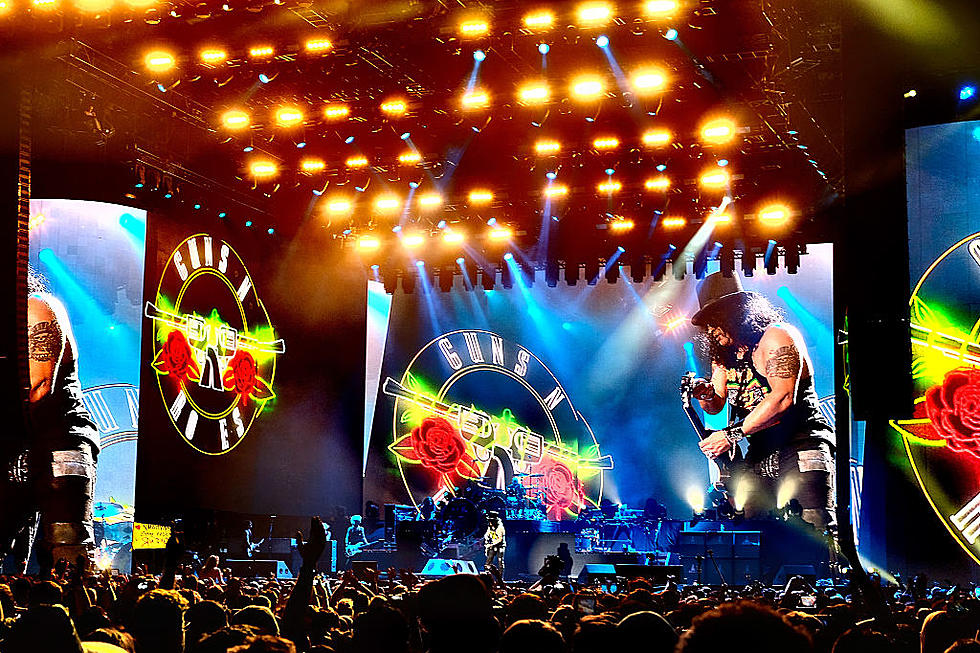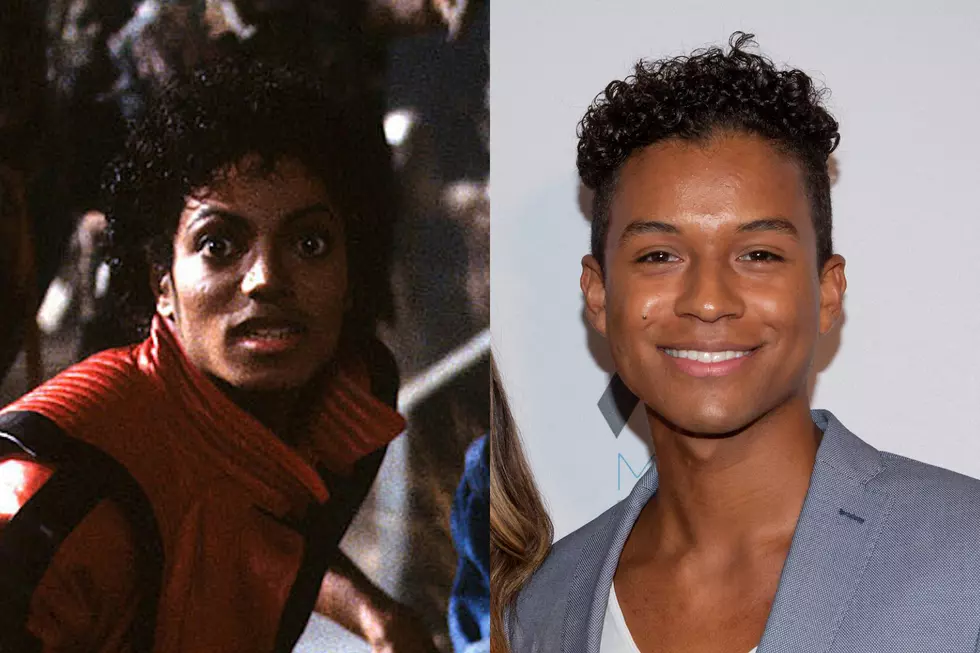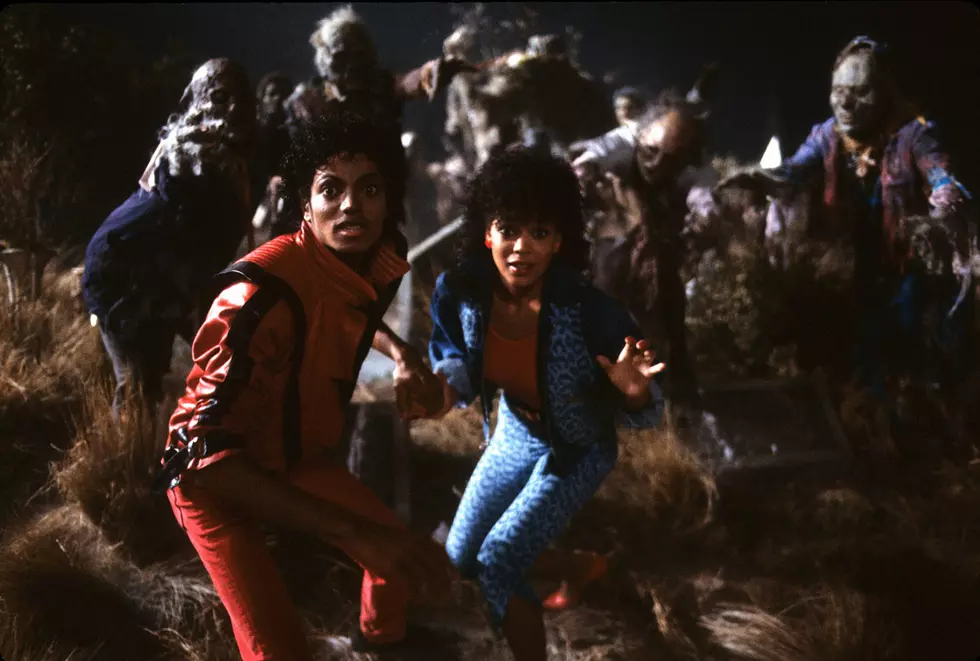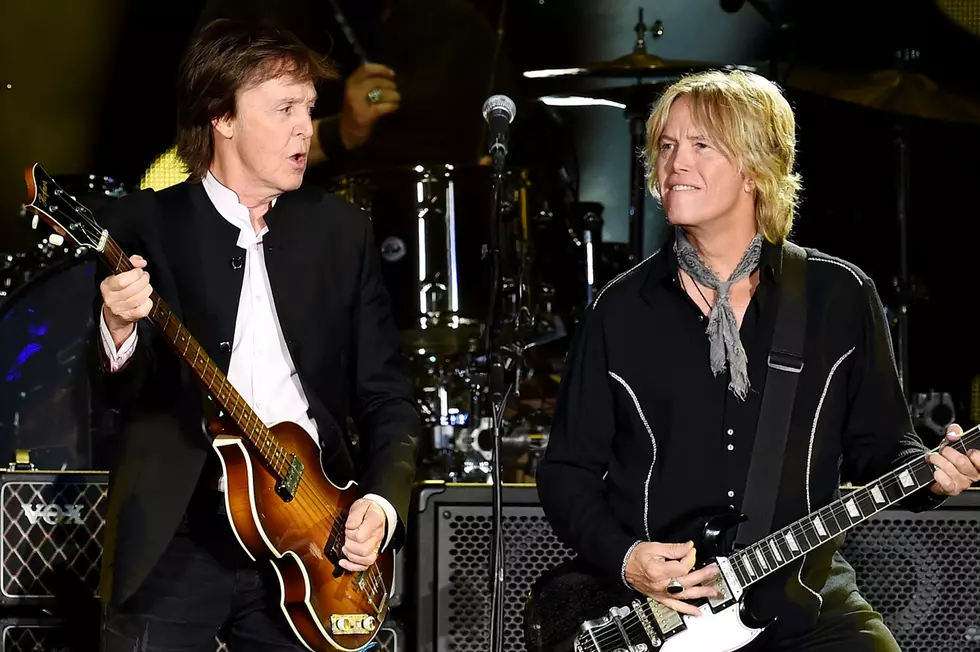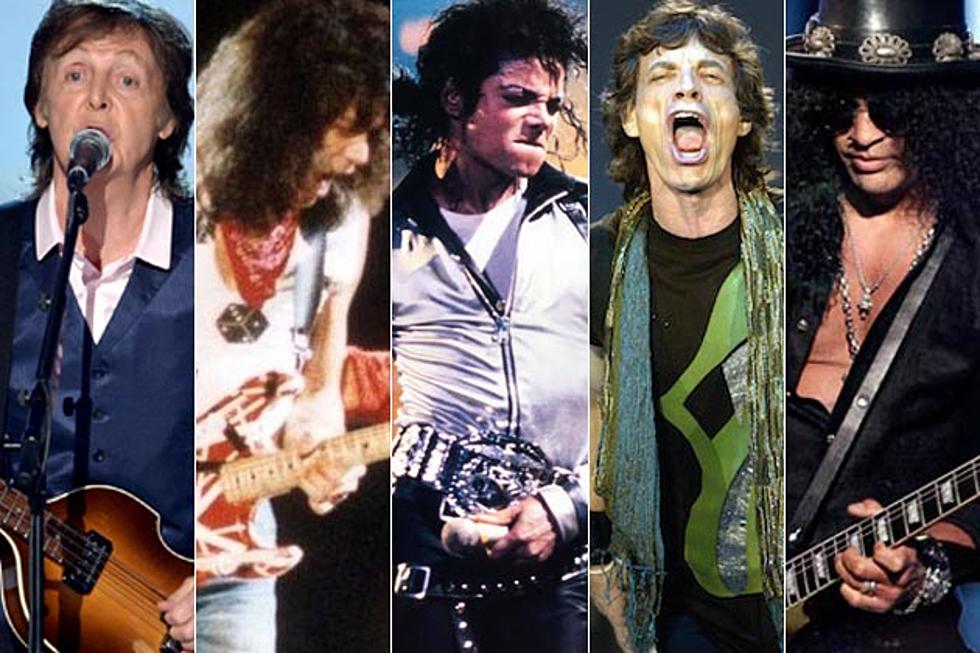
Michael Jackson’s Rock ‘n’ Roll History
The late Michael Jackson will forever be known as the King of Pop. Throughout his record-breaking music career however, Jackson very generously dabbled in rock 'n' roll, collaborating with some of the genre's musical elite in the process. Let's take a look at some of those legends that worked with Jackson before his untimely passing on June 25, 2009.
Kenny Loggins
'Who's Right, Who's Wrong' (1979)In hindsight, it seems strange that a song featuring Michael Jackson wouldn't be released as a single. But that's what happened with "Who's Right, Who's Wrong," a deep cut from Kenny Loggins' Keep the Fire, on which Jackson's background vocals are distinctly heard in the chorus. The album's big hit was "This Is It," which features background vocals from another star, five-time Grammy winner Michael McDonald.
Paul McCartney
'Girlfriend' (1979), 'The Girl is Mine' (1983), 'Say Say Say' (1983)One of the few people whose fame arguably eclipsed Jackson's was Paul McCartney. The former Beatle penned "Girlfriend" for 1979's Off the Wall, marking the beginning of what was once a good friendship between the superstars. McCartney later appeared on the Thriller track, "The Girl Is Mine," while Jackson reciprocated the favor, duetting on "Say Say Say," from the latter's 1983 album Pipes of Peace. "The Girl Is Mine" climbed to No. 2 on the Billboard Hot 100 in 1983, but "Say Say Say" topped the chart. Perhaps most surprisingly about "Say Say Say" is that it ranks as Jackson's biggest hit on the Billboard chart. The friendship between Jackson and McCartney would suffer irreparable damage when, a year later, Jackson outbid McCartney for ownership of the publishing rights to more than 250 Beatles songs. Jackson drew further ire from McCartney in 1987 when he licensed the Beatles song "Revolution" to be used in a commercial for Nike. After Jackson unexpectedly passed away in June 2009, McCartney was gracious and forgiving, described his former song partner as a "massively talented boy-man with a gentle soul. I feel privileged to have hung out and worked with Michael," he said.
Dave Mason
'Save Me' (1980)Best known for his 1977 hit, "We Just Disagree," as well as his time in Traffic and guitarist-for-hire, Dave Mason duetted with Jackson on 1980's "Save Me." The funky track, which appeared on Mason's album Old Crest on a New Wave, only got as high as No. 71 on Billboard's Hot 100.
Eddie Van Halen
'Beat It' (1982)Michael Jackson's rock collaborations didn't stop with Paul McCartney. Van Halen's Eddie Van Halen agreed to record a free and uncredited guitar solo on the song "Beat It" as a favor for Thriller producer Quincy Jones. Van Halen reportedly cut his 20-second solo in less than a half hour. In an interview with CNN, Van Halen marveled at the fact he believed that his bandmates would be none the wiser to his appearance on Thriller. "I said to myself, 'Who is going to know that I played on this kid's record, right? Nobody's going to find out.' But according to the Van Halen News Desk, Van Halen says that the collaboration did not go over well with the other members of the band. “Certain people in the band at that time didn’t like me doing things outside the group. But [singer David Lee] Roth happened to be in the Amazon or somewhere, and Mike [Anthony, bassist] was at Disneyland and Al [Van Halen, drummer] was up in Canada or something, and I was home alone. So I thought, well, they’ll never know." After having suggested an alternate arrangement for "Beat It," Van Halen didn't quite know how Jackson would react to the changes he made to the song. "I was just finishing the second solo when Michael walked in," he recalled. "And you know artists are kind of crazy people. We're all a little bit strange. I didn't know how he would react to what I was doing. So I warned him before he listened. I said, 'Look, I changed the middle section of your song,' Now in my mind, he's either going to have his bodyguards kick me out for butchering his song, or he's going to like it. And so he gave it a listen, and he turned to me and went, 'Wow, thank you so much for having the passion to not just come in and blaze a solo, but to actually care about the song, and make it better.' As a side note, the guitar riff that underpins "Beat It" was played by Steve Lukather of Toto.
Freddie Mercury
‘There Must Be More to Life Than This,’ ‘State of Shock’ and ‘Victory’ (1983)Freddie Mercury spent six hours in Jackson's home studio in 1983, laying down vocals on three songs, "There Must Be More to Life than This," "State of Shock" and "Victory." Both parties eventually deemed the songs unsuitable for official consumption and have been frequently bootlegged, although the first two were released in other forms.
Mick Jagger
'State of Shock' (1984)Thriller was still high on the charts in 1984 when Michael Jackson's next association with rock royalty came to pass. He had reunited with his brothers for the Jacksons' Victory album and subsequently recorded the No. 3 hit single "State of Shock" with none other than the Rolling Stones' Mick Jagger. Bruce Swedien, the recording engineer for the Jacksons' Victory album recalled that Jackson instructed Jagger to warm up his vocals in preparation for the session. And while it may seem ludicrous to some that Michael Jackson would be giving pointers to the Rolling Stones frontman, Swedien said that Jagger happily complied. This undoubtedly helped show how much respect Jagger had for Jackson. "Mick didn't hesitate. By then, everyone knew how good Michael was," Swedien said. "If Michael Jackson says warm up, you warm up -- even if you are Mick Jagger."
Various Artists
'We Are the World' (1985)In order to raise money for African famine relief, Jackson and Lionel Richie co-wrote "We Are the World." The two, with Quincy Jones producing, gathered together an incredible array of some of the era's most popular musicians under the name USA for Africa. Among the rockers who contributed to the track were Bruce Springsteen, Bob Dylan, Billy Joel and Paul Simon. "We Are the World" was No. 1 for a month and raised a reported $63 million.
Steve Stevens
'Dirty Diana' (1987)When it came time to record the follow-up to Thriller, Quincy Jones reportedly called producer Ted Templeman to ask who he could recommend to perform a guitar solo on the song "Dirty Diana," which would become another No. 1 hit for Jackson. Not wanting to repeat themselves by bringing Eddie Van Halen back into the studio, Templeman recommended Billy Idol guitarist Steve Stevens. When Jones made the initial call to Stevens, the guitarist didn't believe the person on the other end of the phone line. "I was living in New York at the time and I got a phone call from Quincy Jones," he said. "The phone rang and I thought someone was f---ing with me. I hung up the phone but then the phone rings again and he goes, 'Don't hang up, because this is the real deal.'" Stating that the original version of "Dirty Diana" that he performed on was more than seven minutes in length, Stevens didn't expect the song to be as dark and heavy as it was. "Michael was very musical," he continued. "The things he requested and asked for were all really cool ideas. He understood what I was about and was trying to get the best out of my performance. It was a great session."
Slash
'Give in to Me' (1991)Jackson's desire to seek unconventional collaborations continued with 1991's Dangerous. The pop star selected Guns N' Roses guitarist Slash to play on the track "Give in to Me," although many mistakenly believe the legendary guitarist played on Jackson's single "Black or White." Slash set the record straight in a 2010 interview, saying, "I did not play on [that song]. The sound of the guitar [on that song] is very happy. It just doesn’t sound like me, anyone would know that. It’s not the guitar sound you would expect from me, but somehow I got pigeonholed as the guy who played on that song.” Of course, that didn't stop Slash and Jackson from eventually performing "Black & White" together live.
More From Mix 92.3

